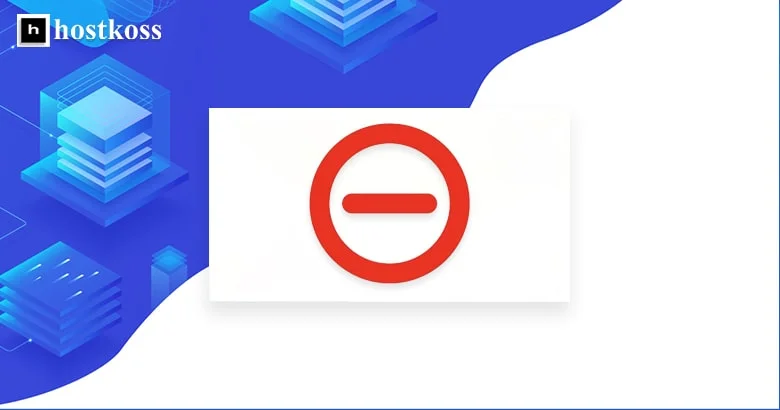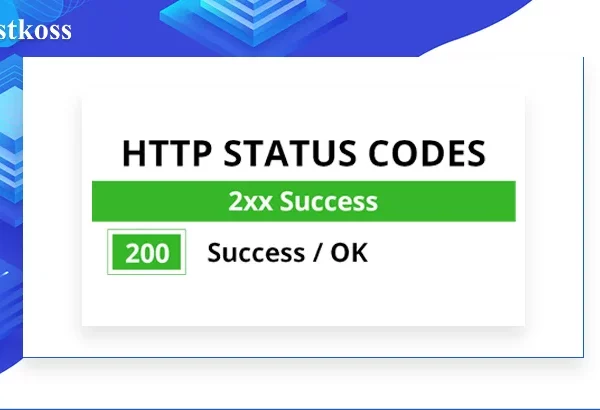Greetings, dear readers! I am writing this text because I believe that knowledge of the hosting business for resellers is the key to success. Today’s rapidly changing world requires us to be able to adapt, especially if you want to run your own business.
Understanding the reseller hosting market is not only about the technical aspects, but also about the ability to identify your customer’s needs and win their trust. Nowadays, when the number of websites is growing exponentially, it is important to have a proper understanding of how hosting works and how you can become an effective reseller.
Creating a successful hosting business requires you to have knowledge of technology, security, and customer interaction. This article offers you a comprehensive guide that covers all aspects of reseller hosting, from choosing the right service provider to customer acquisition and retention strategies.
- What is a hosting reseller business?
- Identify potential customers and their needs for reseller hosting
- Setting up your reseller hosting business
- Creating an effective landing page for a hosting reseller
- Offer of additional reseller hosting services
- Marketing reseller hosting services using SEO and social media.
- Creating a community forum, wiki and technical support
- Scaling your reseller hosting business
- Monitor and optimize your performance
- Keep up to date with industry trends and best practices
- Building a long-term success strategy
- FAQs on Hosting Business for Resellers
What is a hosting reseller business?

The reseller hosting business is a concept whereby one company, known as a reseller, will purchase hosting resources from another company, known as a primary host, and resell them to its own customers. Instead of building and maintaining the hosting infrastructure itself, the reseller uses the resources of the primary host to provide hosting services to its customers.
The essence of the reseller business is that the reseller acts as an intermediary between the primary host and the end users. A reseller buys hosting plans or server resources in bulk and then distributes them to its customers, while providing its own level of service and support.
One of the main advantages of the reseller business is the ability to benefit from the sale of hosting services without investing in a significant amount of their own technical resources and infrastructure. Resellers can concentrate on developing their own brand, providing additional services, and efficient customer service.
If you are thinking about starting a reselling business, I recommend choosing a hosting reseller from hostkoss – the perfect option for your start
How does the hosting reseller business work?
1. Obtaining resources: A reseller starts by purchasing a certain amount of server resources (disk space, bandwidth, etc.) from a large provider that acts as the primary host. This can be a wholesale amount of hosting services or virtual servers that the reseller can customize and use for their customers.
2. Resource sharing: After receiving the resources, the reseller divides them into smaller parts for their customers. This stage is important for optimal utilization of the purchased resources. The reseller can create different hosting plans with different amounts of disk space, bandwidth and other characteristics according to the needs of their customers.
3. Customer management: The reseller acts as a business owner providing hosting services. They run their own business by managing customers, acting as their primary contact, and providing additional services. This may include technical support, consulting services, and other services that make it easier for customers to use hosting resources.
Importantly, the reseller has control over its customer base and is able to set its own prices and service policies, making it an autonomous business within the reseller hosting.
Pros of reseller business hosting

The reseller hosting business has a number of advantages that make it an attractive choice for entrepreneurs:
Cost-effective: Resellers are not required to invest in large server farms and infrastructure. They can use the resources of the main hoster, which makes entering the market more affordable and reduces initial costs.
Own brand: Resellers have the opportunity to develop their own brand and create a unique image in the market. This allows them to separate from the main host and build their own customer pool.
Managed support: Resellers can provide their own service packages and develop unique technical support. This creates an opportunity to provide personalized services and solve customer problems more efficiently, which makes it competitive in the market.
All of these advantages help resellers enter the market faster, build their own brand, and compete with other hosting providers, while ensuring economic benefits and a higher level of control over their business.
Cons of reseller business hosting

There are some disadvantages in the hosting reseller business that are important to consider:
Limited resources: Resellers are limited to the resources they buy from the primary host. This can become a problem, especially if the client’s business grows and requires more resources. The limitation can lead to unstable websites or the need to expand quickly.
Dependence on the main host: Resellers are completely dependent on the primary host from which they receive resources. If the main host has problems, it can affect the reseller’s work and its customers. For example, a primary host outage can cause all reseller sites to go down.
Competition: With the growing popularity of the reseller business, competition can become significant. This is especially important in the area of pricing, where resellers can compete for customers.
In general, the hosting reseller business is a convenient tool for starting in the hosting industry, but it is important to carefully study its limitations and consider the risks before taking on this type of business.
Identify potential customers and their needs for reseller hosting

Before we rush into the reseller hosting business, we must clearly understand who our customers will be and what they are generally looking for in the field of web management. Identifying the target audience is a step that can determine the success or failure of our enterprise.
First of all, it is important to use a sound mind and engage in a dialog with potential customers. Conversations of this nature can reveal the needs and requirements they have regarding hosting. Even if it seems obvious, sometimes we can discover unexpected aspects that can be key to understanding.
Additionally, it is important to conduct thorough research on potential customers and find out what their business needs are. Analyzing their field of activity, their goals, and their infrastructure requirements can provide us with important guidance on how to become their optimal host.
In any case, success in the hosting reseller business will be determined by the ability to take into account the needs of customers and provide them with appropriate solutions. Therefore, the more we know about our potential customers, the more effectively we can help them.
Identification of the target audience: Deep dive
To successfully define your target audience, you need to take a deep dive into their needs and requirements. It’s not just about determining their age or geography. In fact, it’s about how they use hosting, what problems they solve, and how we can improve their web experience.
To achieve this metamorphosis, it’s important to understand their business processes. What specific tasks do they solve with web hosting? How do they interact with their customers? Identifying these aspects will allow us to become not just hosting providers, but also strategic partners in their successful business.
This deep dive into our customers’ business processes will open up opportunities for innovation and improvement. We will be able to tailor our services to meet their exact needs. This individualized approach allows us not only to meet expectations, but also to act as a strategic partner in the development of their business.
Analysis of customer needs: Mapping the landscape
Understanding your customers’ needs is only the beginning. To ensure that their requirements are fully met, it is important to create not just a map, but a detailed map of the landscape of their needs. This will allow you to not only answer what they are interested in now, but also anticipate their future needs.
Instead of just responding to current questions, we need to explore all the facets of their business. What specific hosting features do they really need? What are their scalability requirements? What are their security and performance requirements?
A requirements landscape map will allow us to monitor the dynamics of changes in their needs. It is a tool for analyzing not only the present, but also the future. We will always be aware of their expectations and ready for changes, which will allow us to maintain our leadership in the reseller hosting industry.
Setting up your reseller hosting business

Let me start by saying that setting up a reseller hosting business is a step into the world of online entrepreneurship, which can open up many opportunities for you.
First of all, it is important to choose the right hosting provider. I spent a lot of time researching the market and comparing the capabilities of different companies. Choose a reliable partner that guarantees stable server performance and a high level of security.
If you are thinking about a reseller career, my recommendation is to choose a hosting reseller from hostkoss to start your business.
One of the key components of success is proper pricing. Try to set competitive and attractive rates for your customers. Don’t forget to consider maintenance costs and possible expansions.
Setting up a user-friendly and intuitive dashboard for your customers is another important step. Remember that they should easily understand how to use your services, as it affects their satisfaction and loyalty.
Also, don’t forget about marketing. Develop an effective promotion strategy and attract new customers. Collaborate with other businesses, study market demand, and tailor your services to meet customer needs.
Don’t be afraid to experiment and improve your business. The Internet is constantly changing, and only those who are ready to grow can succeed. Don’t forget about customer support and study their needs.
Choosing the right hosting provider and platform
Choosing the right hosting provider and platform for your web project is an important step that will determine the future success of your online business or personal website. With an overabundance of offers on the market, it is important to make an informed choice.
Identify your needs: First of all, determine what features and capabilities your project needs. What traffic volumes are expected? Do you need a certain kind of technical support?
Reviews and ratings: Check out user reviews and ratings of different hosting providers. Find out about their reputation, service levels, and reliability.
System requirements: Make sure that the hosting provider supports the technical requirements of your project. Consider future expansions and capabilities.
Price and packages: Compare the cost of services from different providers. Pay attention not only to the price, but also to the functionality included in the package.
Customer support: It is important to be able to get help in case of problems. Check how each provider’s customer support works.
Security systems: Make sure that the hosting provider provides a strong level of security for your data and website.
Scalability: Plan for the future. Choose a provider that can grow with your project.
By considering all of these factors, you can make an informed decision about choosing a hosting provider and platform that will meet all of your needs.
Setting up a reseller account and cPanel control panel
If you decide to use cPanel, it can be a very convenient tool for managing your reseller hosting. To ensure maximum control and efficiency in managing your reseller account and cPanel control panel, you will need to perform some customization. This will allow you to maximize the adaptation of your work environment to your needs.
First of all, keep in mind that proper reseller account setup determines the convenience and efficiency of your work with customers. When creating a reseller account, it is important to specify enough resources to ensure stable operation of your customers.
The cPanel control panel provides a lot of tools for managing your hosting. One of the key points is the security settings. It is recommended to set strong passwords and update them regularly to protect your customers’ data.
You should also pay attention to the backup settings. Regular backups will allow you to prevent the loss of important data in case of unforeseen situations.
Setting up email is also an important step. Make sure that your customers can easily set up their email and receive messages without delay.
In general, setting up your reseller account and cPanel correctly will determine your comfort and convenience. Don’t forget to update the settings according to changes in your business and customer needs.
Setting up hosting plans in cPanel reseller packages and pricing structures
So, let’s take a look at how to set up hosting plans in reseller cPanel and the pricing structure. First, let’s talk a little bit about cPanel itself – it’s a tool that makes the life of a hosting manager easier.
When considering hosting plans, it’s important to consider your business needs. I always advise you to decide what resources you need, how many sites you want to manage, and what additional features are important to you.
As for the pricing structure, it’s important to consider not only the total cost but also what it includes. Some plans may look expensive, but they can include many additional benefits that will save you time and headaches in the future.
To set up plans, you usually need to go to the administrative panel of your hosting account. There you will find a section dedicated to reseller plans. Follow the instructions or, if you are already familiar with hosting, experiment until you find the best settings for your business.
Remember, it’s better to spend time studying the settings and pricing structure in detail now than to face problems in the future.
Creating an effective landing page for a hosting reseller

I have been researching the issue of creating an effective landing page for a hosting reseller for some time now, and the question arises: which CMS is better to build your website on – Joomla, WordPress or Drupal? Each of them has its own advantages and features.
WordPress is perhaps the most popular CMS, impressing with its ease of use and the many plugins available. This is especially important for resellers looking for an efficient and fast way to launch their website.
Joomla is a more flexible CMS that allows you to expand the capabilities of your site while providing a high level of control. This can be useful if you need more fine-tuning of your reseller hosting.
Drupal is the choice for those looking for a high level of security and scalability. This can be especially important for those who plan to grow their reselling business for the long term.
However, it is also worth considering out-of-the-box options such as WHMCS. This is a billing system that allows you to efficiently accept payments and automate many processes related to hosting reselling.
Ultimately, the choice of CMS and billing system depends on your specific needs and business development strategy. Even if WHMCS is an off-the-shelf option, it is important to carefully consider all aspects and choose the one that best suits your unique needs.
Development of a visually attractive and convenient layout for a hosting reseller

I would like to share with you my opinion on how to develop a visually appealing and user-friendly layout for a hosting reseller. I have already written before about choosing a CMS for my project and developing sales pages for a hosting reseller. Now let me elaborate on creating an effective layout.
First of all, it is important to define the main goals of your website and take them into account when creating the design. If you have already chosen a CMS for your project, such as WordPress, you should consider purchasing a ready-made template. Such a template already contains an integrated WHMCS design, which will save time and simplify the work with the billing system.
Below are links to popular WordPress templates with built-in WHMCS:
These templates will help you create a stylish and professional look for your website that will appeal to your customers.
If you already have experience in development, you can try to create a unique layout yourself. Focus on ease of navigation and usability for users. Make basic elements like hosting plans and contact information easily accessible.
Make your layout not only aesthetically pleasing but also functional. Provide convenient access to all the necessary services and features of the hosting reseller. This way, you will ensure a positive user experience and increase conversions on your website.
Create an attractive text that emphasizes your hosting reseller services

When it’s time to introduce your reseller hosting business, it’s important to have a copy that will impress and grab attention. With the template choice already made, our next step is to write the text that will highlight each hosting reseller service.
First of all, the choice is yours – you can use the existing texts created with CHATGPT or take the pen in your hands and write the texts yourself. Both options have their advantages, and the choice depends on your style and approach.
If you choose to write your own texts, it’s important to keep in mind the key points to emphasize for each service. For example, talk about the reliability of the servers, the speed of uploading, and the individual approach to each client.
On the other hand, CHATGPT can create a text that not only conveys the technical characteristics but also makes them easy and understandable for your audience. Thanks to artificial intelligence, you can get a text that impresses with its clarity and emotionality.
Ultimately, no matter how you choose to write your copy, it’s important that it reflects your brand and creates a positive impression. Work on every word, striving to make your hosting reseller services not just a product, but an impressive solution for your customers.
Including testimonials and case studies to build trust.

When you’re working on your reseller hosting copy, don’t forget to include an important element – testimonials and case studies. This is an effective way to build trust with your audience and provide additional arguments in favor of your services.
Feedback from other customers can be a real strength of your offer. Add short but informative testimonials that reflect the positive experience of using your hosting. This will create an impression of reliability and customer satisfaction.
Case studies can also work in your favor. Share statistics on download speeds, server reliability, and other key features. This will provide additional justification for your choice and build confidence in your product.
When your text is backed up by real reviews and research, it gains additional weight and conviction. Customers like to have proof, and this will add a stamp of trust to your reseller hosting. This way, you will take your business to the next level and create an attractive image among your competitors.
Offer of additional reseller hosting services

To make your reseller hosting business even more attractive to customers, you should consider additional services that will enhance their experience and improve the security of their web resources.
Cleaning the Website from Viruses:
- Remember that security is the #1 concern for any website. Offer your clients virus cleaning services to ensure that their resources are safe and secure for visitors.
Transferring websites:
- Moving to a new hosting service can be a challenge for many website owners. Secure their purchase by offering website migration services. We will help you with all the technical aspects!
Server Administration:
- Instead of customers having to do the technical administration of the server themselves, you can provide this service as part of your reseller package. We guarantee you efficient server management and quick resolution of any problems.
With these additional features, you can not only increase your customers’ satisfaction but also expand your business. Remember, good customer relations are the key to success in the hosting industry.
Marketing reseller hosting services using SEO and social media.

When setting up your own reseller hosting, it is important to ensure that your business is visible and memorable online. Two main tools that will help you achieve this goal are search engine optimization (SEO) and effective social media engagement.
SEO: Increase Visibility and Rankings
A stable presence in search engines is an important aspect for reseller hosting. When working on SEO, identify the keywords that best reflect your service. Incorporate these keywords into your website content, meta tags, and URLs to boost your search rankings.
Create unique and informative content that will be of interest to your audience. Regularly update your website, including a blog or news section, to help keep your content relevant and attractive to search engines.
Social Media: Engage Customers and Build Community
Effective interaction with social media is another step to success. Choose the social media platforms that best suit your target audience. Post interesting and useful content, communicate with your audience through comments, and attract them to your business.
Organize promotions and contests through social media to attract attention and increase interest in your reseller hosting. Make sure your content reflects your uniqueness and specialties to stand out from the competition.
Understand the needs and expectations of your target audience, and you can build a strong online presence that will not only attract new customers, but also be memorable to them.
Creating targeted email campaigns and promotions in reseller hosting

One of the key elements of successful reseller hosting is the ability to attract and retain customers. Creating targeted email campaigns and promotions is an important tool in the marketing arsenal.
1. Segmentation of the Customer Database
- Divide your database into segments according to certain characteristics, such as business size, technical needs, or frequency of service use. This segmentation will allow you to create personalized messages that meet the needs of each segment.
2. Personalized email campaigns
- Create personalized email campaigns that take into account the individual needs and interests of your target audience. Include information about new features, discounts, or special offers that may be of interest to each customer.
3. Discounts and Special Offers
- Organize time-limited promotions and give customers special discounts or bonuses for certain actions, such as renewals or referrals. This not only stimulates activity but also increases loyalty.
4. Automation and Tracking
- Use automation tools to send email campaigns and track customer response. Analyze open, click, and conversion data to make adjustments and optimize your strategies.
5. Social Media in Campaigns
- Integrate social media elements into your promotions and email campaigns. Engage your customers in discussions, organize contests, and provide an opportunity to subscribe to your social accounts directly from email.
Creating targeted campaigns and promotions is important for maintaining and developing your reseller hosting business. Keep in mind to constantly improve and adapt your marketing strategic plan in accordance with changes in the industry and the needs of your audience.
Leveraging partnerships and affiliate programs for growth

I have personally seen that the use of partnerships and affiliate programs can be the key to success.
Partnerships are not just an exchange of services, but a common path to achieve mutual growth. When we join forces with other players in the industry, we get the opportunity not only to share the burden of competition but also to create synergies.
Affiliate programs in reseller hosting provide an opportunity to generate additional revenue and attract new customers. I have identified two key aspects of using affiliate programs.
First, it is important to choose partners that really meet the needs of my customers. This helps me to maintain the trust and loyalty of my audience, as I provide them with access to quality products and services.
Secondly, effective interaction with partners is all about art. Mutual support, exchange of ideas and resources allows us to respond effectively to changes in the industry and ensures business sustainability.
The powerful impact of partnerships and programs in reseller hosting cannot be underestimated. This is not only a strategic move, but also an opportunity to become part of a large community that supports each other on the way to common success.
Creating a community forum, wiki and technical support

Creating a real community in reseller hosting is not only a task, but also a real goal. Especially when we’re talking about forums, wikis, and ticketing systems for customer support. Here’s how you can do it:
Let’s start with the forum. It’s not just a place for technical discussions. It’s a place where every user can share their experiences and solutions to problems. It’s deeper than just discussing issues – it’s an opportunity to help each other. And, of course, let it be not only about technical things, but also about common hobbies, joys, and events.
A wiki is a treasure trove of knowledge. It contains not only dry facts, but also short articles that help newcomers to understand things. Share your experience and skills – it will be useful for you and your customers.
A ticket system is your guarantee that every customer will receive a response. Create a process that works like clockwork and provide a guarantee that every issue will be reviewed and resolved.
Customer service is about interaction. Thank them for their feedback and encourage them to provide it. Create promotions for those who share their impressions. And don’t forget that even a negative review is an opportunity to improve.
In this way, we are not just creating a service, we are creating a community where everyone will feel important and be part of something bigger.
Scaling your reseller hosting business
Expanding a reseller hosting business is a task that requires not only ambition but also a strategic approach. To ensure sustainable growth, it’s important to identify and capitalize on opportunities for expansion.
The first thing you should pay attention to is identifying new markets and audiences. A thorough analysis can point out where the demand for hosting has not yet been exhausted and where you can establish your roots. Expand your horizons and look at opportunities globally.
Modernizing your infrastructure is a key aspect. Technology is constantly changing, and you need to keep up with it to scale successfully. Upgrade hardware and software as needed to ensure that your customers always receive cutting-edge services.
Building a skilled team is one of the most important components of success. Hire professionals who have experience in the hosting industry and understand its peculiarities. The joint work of qualified specialists will ensure the effective management of your business and support its growth.
Don’t forget about marketing and sales. An effective promotion and customer service strategy can play a crucial role in attracting new users and retaining existing ones.
Thus, in order to successfully scale your reseller hosting business, it is important to carefully study the market, support technological innovations, build an effective team, and develop a sales strategy. With the right approach, you will be able to conquer new markets and ensure sustainable growth of your business.
Monitor and optimize your performance

In a large-scale world of competition and rapid development, my job is to ensure that you are as productive as possible. To achieve this goal, it is important to have effective monitoring and optimization tools.
The first step is to track key performance indicators (KPIs) and metrics. In an effort to improve results, I carefully analyze these indicators, identifying strengths and weaknesses. This allows me to see the full picture and make informed decisions.
Communication with clients is another key component of success. Analyzing feedback allows us to identify needs and problems that require attention. I personally set aside time to carefully review each feedback and address any issues that arise.
Continuous improvement is the foundation of my strategy. By improving our hosting services and offerings, I respond to changing market demands. By introducing innovations and optimizing processes, I ensure stability and competitiveness.
Let this approach to monitoring and optimization become a key tool for you to achieve high performance and success.
Keep up to date with industry trends and best practices

To stay on top of my game in the hosting world, I always prefer to stay on top of industry trends and engage in best practices. This is how I do it:
Keeping up with the latest technologies and innovations, I strive to participate in every possible aspect of the hosting industry. This means not only improving our services, but also actively researching new products and making high-tech solutions for our clients.
Participation in industry events and conferences is my main strategy. Meetings with experts, discussing trends and learning from examples of successful applications of new technologies. This is not only a source of new ideas, but also an opportunity to share experiences and get support in the industry.
Interaction with other resellers and specialists is another key aspect of my approach. Together with my colleagues, we share best practices, solve challenges, and develop new ideas for hosting development.
My strategy is not just to maintain our position in the market, but also to actively introduce innovations that lead to qualitative changes in the industry.
Building a long-term success strategy

If you are looking to grow your hosting reseller business on a long-term basis, the key step is to develop a comprehensive business plan and roadmap.
Try to think of your business as a journey. When you have a clear route and defined destinations, it is easier to avoid difficulties and achieve your goals. Careful goal setting is a step in managing your own success.
When creating a business plan, determine what resources and skills you need to achieve your goals. Consider all possible risks and ways to avoid them. This will help you prepare for unforeseen circumstances and maintain the stability of your business.
Set realistic goals, taking into account your current capabilities and market conditions. Identify milestones that will serve as guidelines on the road to success. Remember that planning is not a static process. Periodically review and adjust your strategy to reflect changes in technology, the economy, and competition.
Continued success requires continuous improvement. Keep up to date with current trends, study innovations, and develop your skills. The popular articles I’ve attached will help you with this:
- How to configure HTTPS for Joomla
- Setting up HTTPS in OpenCart
- A complete guide to searching the web archive
- 10 services for creating online surveys
- What is your server control panel
- What is a .htaccess file and what is it for?
- What is disk space and how much do I need?
- Complete guide to Ping and Traceroute via command line
- Clear your computer’s cache and speed up your web browsing
Read them, improve your knowledge, and stay on the path to success.
FAQs on Hosting Business for Resellers
A hosting business for resellers allows entrepreneurs to purchase and resell hosting services. It empowers them by providing a platform to offer web hosting, domain registration, and related services without the need for infrastructure investment.
Reseller hosting allows entrepreneurs to purchase hosting resources in bulk and then redistribute them to their clients. This model enables them to create their own hosting plans and set pricing, offering a more customized and scalable solution.
Starting a reseller hosting business offers entrepreneurs a low-risk entry into the hosting market, with minimal upfront costs. It provides the opportunity to build a brand, generate recurring revenue, and establish a strong online presence
Generally, anyone can become a reseller. There are no stringent requirements, making it an accessible option for entrepreneurs. Basic knowledge of hosting and web technologies can be beneficial, but it’s not a mandatory prerequisite.
Reseller hosting platforms often come with user-friendly interfaces, automation tools, and customer support, making it easier for entrepreneurs to manage their hosting business efficiently. This allows them to focus on growing their customer base and brand.
Many reseller hosting providers offer 24/7 technical support to both resellers and their clients. This ensures that any technical issues or inquiries are promptly addressed, enhancing the overall customer experience
Yes, resellers have the flexibility to set their own pricing and create custom hosting plans. This autonomy enables entrepreneurs to cater to the specific needs of their target market and differentiate themselves in the competitive hosting industry.
Yes, resellers can often rebrand the hosting services they offer. This allows entrepreneurs to build their own brand identity and establish a unique presence in the market without the need to develop hosting infrastructure from scratch.
Reputable reseller hosting providers implement robust security measures, including firewalls, regular backups, and malware scanning, to ensure the safety of both the reseller’s business and their clients’ websites.
Resellers can scale their hosting business by upgrading their hosting plans with their provider, expanding their range of services, and implementing effective marketing strategies to attract a larger customer base. Many reseller hosting platforms offer seamless scalability options to accommodate growth.



